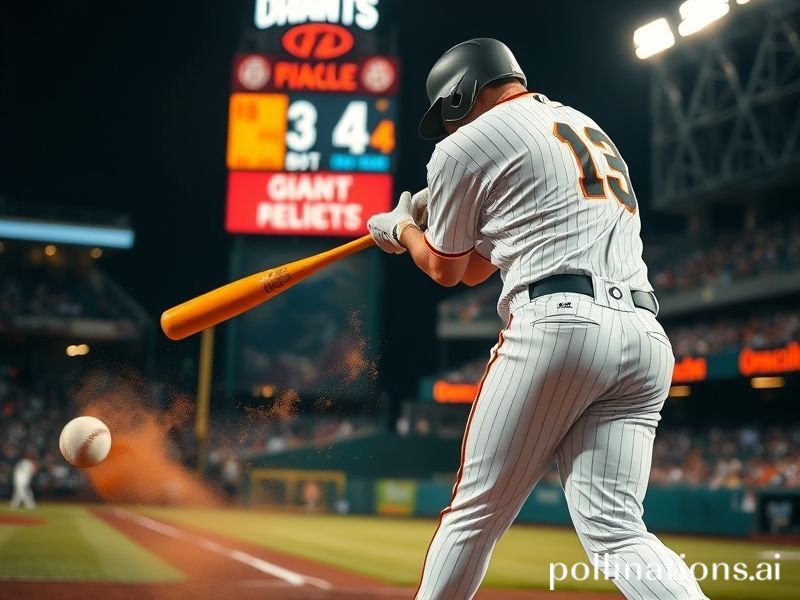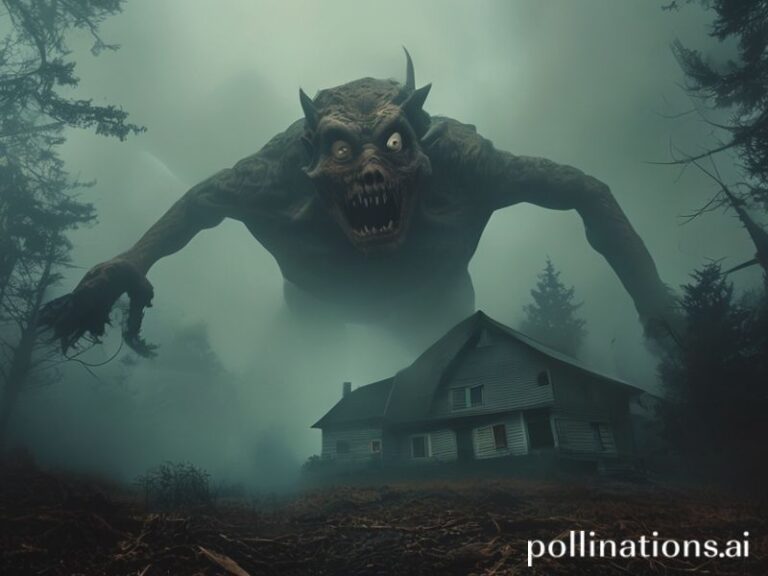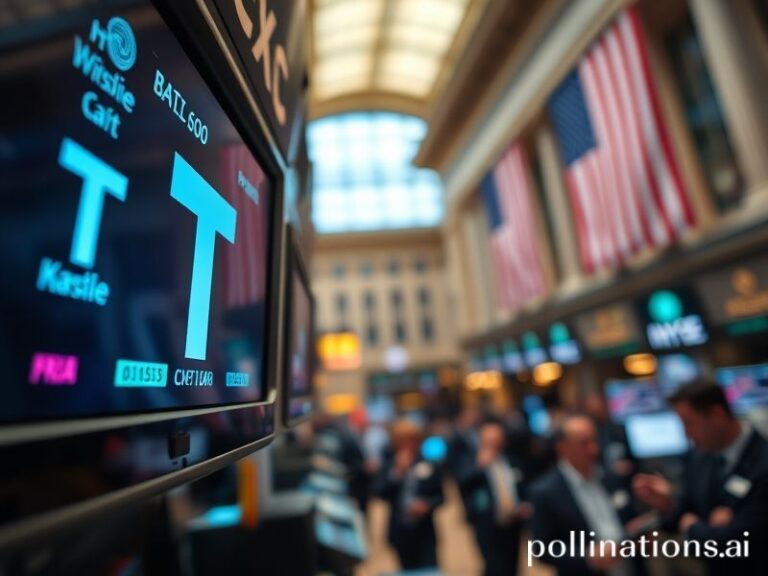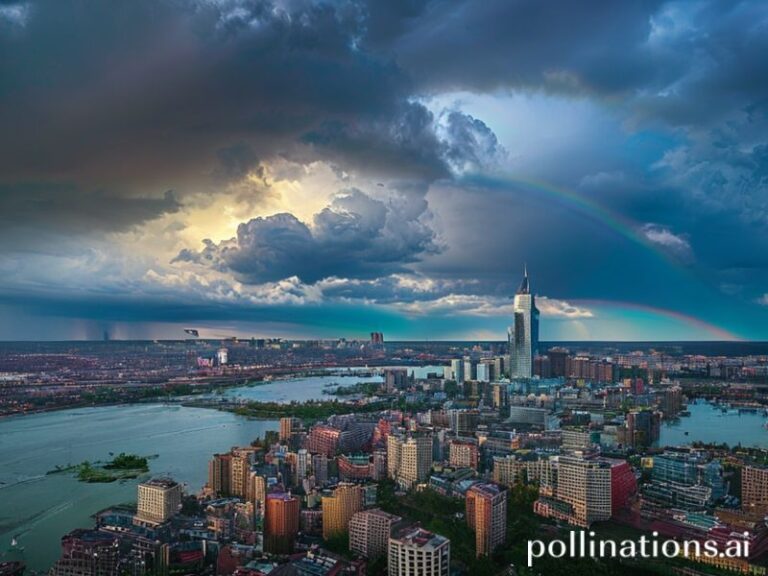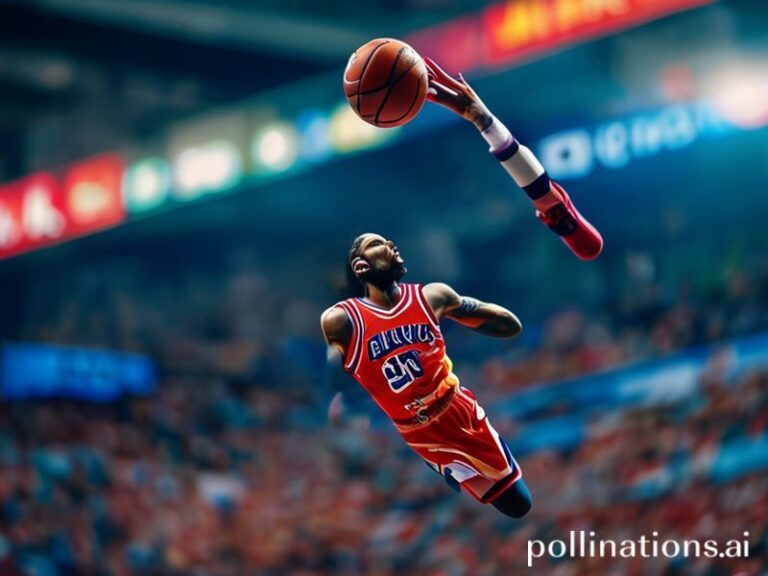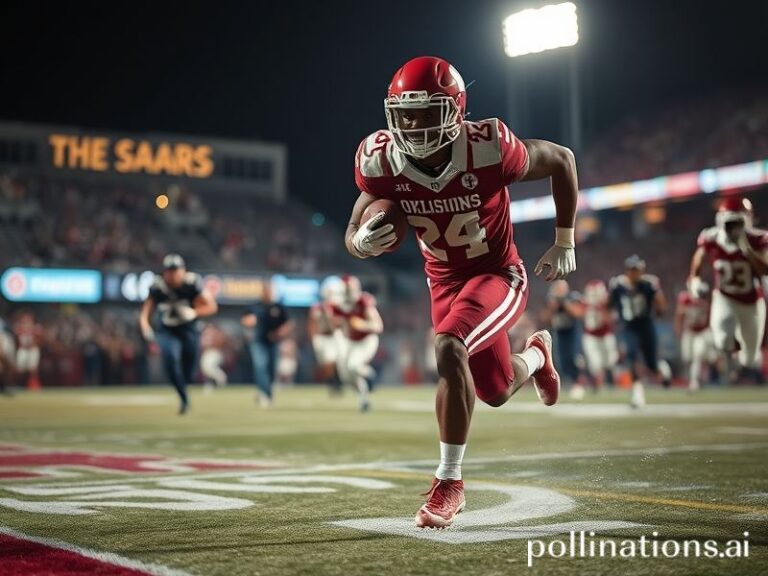Giants vs Dodgers: The Last Imperial Blood Sport the World Still Pretends Is Just Baseball
The Giants-Dodgers rivalry has always been billed as a clash of titans, but from the vantage point of a foreign correspondent who has filed dispatches from war zones, climate summits, and the occasional shareholder meeting in Davos, the whole spectacle looks less like sport and more like a geopolitical power play in cleats. Picture the Korean DMZ, only with garlic fries.
For the uninitiated, the San Francisco Giants and Los Angeles Dodgers are baseball clubs whose mutual loathing predates the invention of the airplane and, tragically, the designated hitter. What began in 1889 as a gentle disagreement between trolley-dodging Brooklynites and Manhattan sugar-barons has mutated into a proxy war fought across 382 miles, three time zones, and one very expensive cable bill. Internationally, the rivalry is less a pastime than a case study in how humans will weaponize anything—sunshine, palm trees, even the humble avocado.
Consider the global stakes. When the Dodgers win, the price of sushi-grade tuna in Tsukiji wobbles; when the Giants win, champagne futures in Reims flutter. Analysts at the World Trade Organization—who presumably have better things to do—track merchandise sales the way epidemiologists monitor new variants. A single walk-off home run can goose the Nikkei by a fraction of a percent, mostly because algorithmic traders have programmed their bots to equate orange rally rags with bullish sentiment. Somewhere in Geneva, a bureaucrat files this under “soft power, harder than it looks.”
Meanwhile, the fans themselves have become unwitting envoys of national character. Dodgers supporters, with their beach-bum insouciance and suspiciously even tans, embody the American talent for exporting pop culture while forgetting to pack humility. Giants fans, swaddled in Patagonia and artisanal smugness, represent Silicon Valley’s belief that everything—love, grief, a 3-2 slider—can be optimized with the right app. Both groups speak fluent sarcasm, the true lingua franca of our fractured planet.
The rivalry’s carbon footprint alone could power a midsize European principality. Each three-game series spawns 147 private jets, 2,400 metric tons of carbon, and one existential crisis per environmental correspondent. The stadium lights at Oracle Park are visible from the International Space Station, prompting astronauts to schedule extra therapy sessions. When viewed from orbit, the rivalry resembles two bioluminescent squid locked in an embrace that is part mating ritual, part death spiral—nature’s way of reminding us that competition and courtship are often indistinguishable.
Back on Earth, the geopolitical metaphor grows starker. The Giants play in a ballpark where the right-field wall is 24 feet high in honor of Willie Mays, a number that also happens to be the age at which most TikTok stars flame out. The Dodgers counter with a stadium built on the bones of a former Mexican-American community, a reminder that all empires—even cinematic ones—are founded on eminent domain. Both franchises have been purchased by hedge-fund consortia whose members vacation on the same yachts they pretend to oppose in campaign ads. The fans, meanwhile, argue over whether a slider is more virtuous than a curveball, blissfully unaware that the real slider is their standard of living.
And yet, for all the cynicism, there is something almost quaint about a rivalry that still relies on human beings throwing horsehide at 97 mph. In an era when wars are fought by drones named after baby sharks, the sight of a 37-year-old relief pitcher shaking off a sign feels like a nostalgic throwback to a time when conflicts required actual sweat. The stakes may be inflated, the ticket prices obscene, and the commentary algorithmically generated, but the crack of the bat remains stubbornly analog—a small, defiant heartbeat in a world determined to flatten everything into data.
So when the next Giants-Dodgers game begins, remember that you are not merely watching baseball. You are witnessing the last ritualized blood sport the West still permits itself, a slow-motion opera in which nine-figure egos collide under the illusion that the outcome matters. It doesn’t, of course. But then again, neither does most of what we call civilization. Pass the garlic fries.

